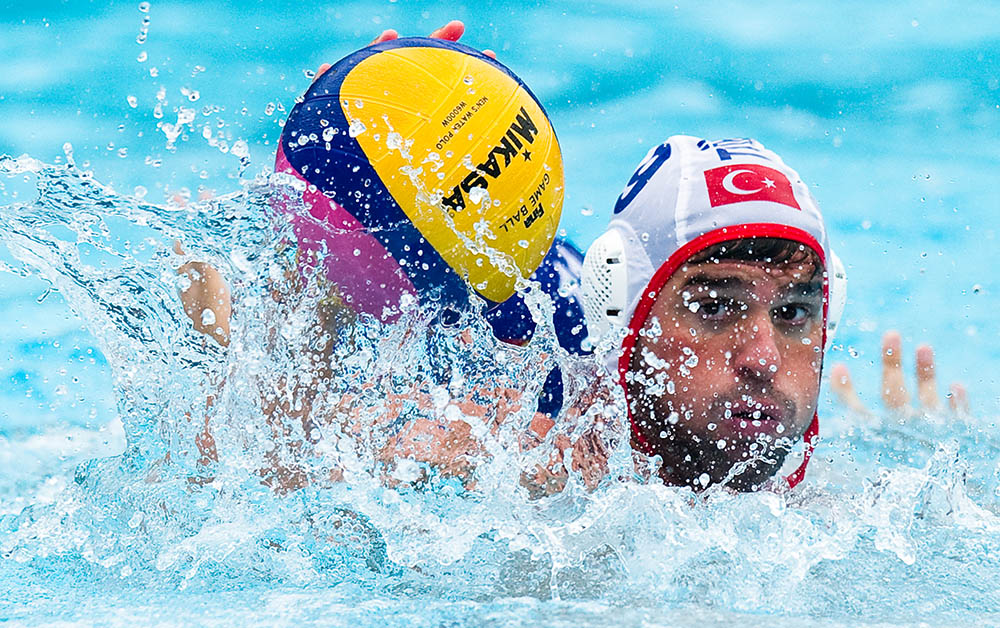The importance given to healthy nutrition, directly influence athletes’ performance. There are some fundamental rules about nutrition, and in order to practice sports professionally for many years and to keep up their performance level high all through this period, athletes must obey these rules.
Besides eating systematically, adequately and according to the recommendations of their dieticians, athletes must also be very careful about training regularly and having enough high quality sleep, to be successful in their sports career.

Nutrition for athletes that train regularly
Uninterrupted energy is needed to keep muscles continually tighten and loosen all through the training sessions, races and matches. The needed energy is produced by the mitochondria that reside in the muscles.
Mitochondria are structures that produce energy and determines how much energy will be used in the cell, how fast it will be sent and which way will be used for this transportation. The more amount of mitochondria resides in the muscle, the more uninterrupted energy is produced.
By the help of training sessions, the amount of mitochondria in the muscles can be increased. And this provides a valuable advantage to the athletes at the races and the matches.
The amount of mitochondria in the muscles is 100-200 times more than the ones in the fatty tissue. Therefore, 1g muscle tissue can burn 20 times more energy than the fatty tissue. For this reason there must be more muscle tissue than the fatty tissue in the bodies of athletes.
During the trainings, the main source of energy is carbohydrates. Carbohydrates are stocked both in the muscles and liver as glycogen. There is around 300-400 grams of glycogen in the muscles and 75 – 100 grams in the liver. With a high carbohydrate diet, glycogen stocks can be increased 1.5 – 2 times.
A 70kg athlete must consume 5 – 6 grams of carbohydrate for each kg of his weight, which makes 350 – 420 grams carbohydrate, for each hour of training. If its heavy training that lasts for 3 – 4 hours, then the needed carbohydrate increases to 8 -10 grams for each kg of his weight, which makes 560 – 700 grams carbohydrate, per training hour.
When we consume some food, we get 9kcal (1000 calories) from 1 g fat, 4kcal from 1g protein and 4kcal from 1g carbohydrate.
The recommended carbohydrate is the one that is called complex carbohydrate, which are the foods that increases the blood sugar level slower. If the foods like biscuits, legumes, citrus, green pea, broccoli, blackberry, peach, plum, pear, kiwi, and whole grain bread, cracker and pasta are consumed at least two hours before the training, the blood level will remain at a stable level throughout the training, and energy consumption will be uninterrupted and continuous.
Food with high glycemic index, increase and then decrease the blood sugar level rapidly. For this reason they must not be preferred before trainings.
The athlete that consumes food with high glycemic index will be energetic at the beginning of the training, but as the blood sugar level decreases rapidly, he will get tired, his performance level will decline and he will start to have troubles in focusing on the training.
Recommended foods with low glycemic index;
Kidney beans, chickpeas, dried haricot beans, lentils, hazelnuts, apple, orange, pasta, whole-wheat bread…
Foods with high glycemic index that athletes must stay away from;
Potatoes, white bread, rice, processed fruit juices, banana, watermelon, corn chips, corn flakes…
Proteins and fats are among the food that takes long time to digest, therefore they must be eaten sparingly before the trainings. If complex carbohydrates are consumed mostly, the glycogen in the muscles will exhaust in 1.5-2 hours of training.
Nutrition after the training
Following the training, the glycogen reserves must be refilled in two hours with food that contains high level of carbohydrate. If 1.5kg of carbohydrate is consumed in this 2 hours, glycogen depots will fill up at higher levels. However the athletes must not eat meals with high level carbohydrate during the two hours after the training.
Recommendations to keep the liquid balance;
Athletes must maintain the optimal liquid balance during and after the training. To provide this, drinking 400 – 600ml liquid (water)2-3 hours earlier and 150 – 300ml liquid right before the training and with intervals of 15-20 minutes during the training will be enough.
Recommendations to have solid muscles;
Tomatoes, dried apricot, hibiscus, grapefruit and watermelon are rich lycopene sources. Eating these foods frequently will help the body to throw away the lactic acid and free radicals that are produced during the training, therefore, increase the toughness of the muscles and minimize the tiredness.
